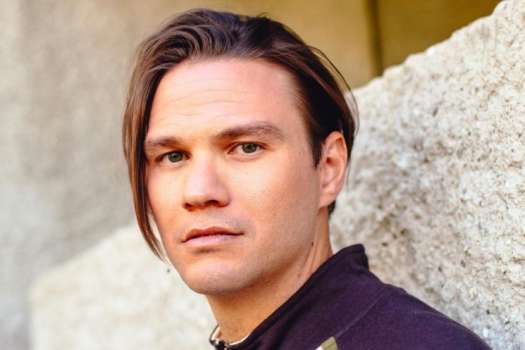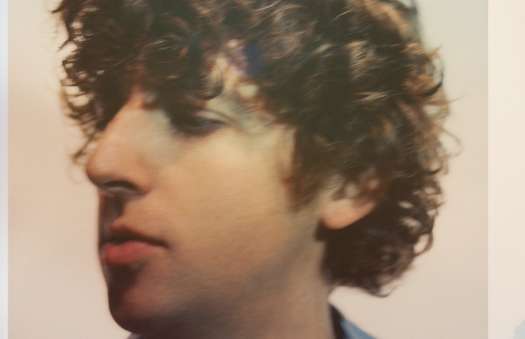With effortless chemistry and an affinity for vintage folk, Saskatoon band the Deep Dark Woods have always created music of the warmest, most inviting variety. With a nice little crop of awards for 2009 album Winter Hours, as well as a win in CBC's Great Canadian Song Quest for "Charlie's (Is Coming Down)," the Woods have gained greater recognition over the past couple of years. And with the addition of Geoff Hilhorst on organ and piano, the arrangements on their fourth album are fuller and deeper than ever. Although songwriter Ryan Boldt and his bandmates are often touted as purveyors of prairie gloom, their morose ballads are tempered, as always, with plenty of upbeat folk rock twang and rich, multi-part vocal harmonies. The sexy sway of pedal steel in "Back Alley Blues," lively shivers of tambourine on "Sugar Mama" and R&B rhythms of "Just Can't Lose" add hints of more recent eras to the solid foundation of traditional songwriting styles. Exploring themes of alienation and displacement, The Place I Left Behind is another wholly satisfying album that builds upon past successes and carries the band forward as one of the country's finest roots acts.
You've gained an organ player since your last album.
Boldt: Yes, we've got Geoff Hilhorst playing with us now. He's been playing with us for over two years; we got him directly after we recorded the last album. He's a full-time player; he's the man. It's not the same without him anymore. I've always wanted to play with a piano and organ player, but we were waiting because it costs a lot more money to add an extra player. Now we're starting to do a little better for ourselves so we can add more people. But that's not the main reason. The main reason is that Jeff's the best piano player I've ever played with or really ever heard around these parts.
Tell me about the recording process for this album.
We wanted to do it ourselves. The last one we did with Steve Dawson and it turned out great, but we thought we could come up with the sounds we wanted on our own. And we got our engineer, the guy that did "Charlie's (Is Coming Down)" for us, and he's an incredible engineer. He knows the sounds you're looking for when you don't really know the words to explain them. It worked out really well for us; I think it's the best thing we've done, for sure. And I'm excited for the next one.
Did you feel confident producing it yourselves?
Oh yeah. Even right from the beginning when I started writing songs, I knew what I wanted. I knew the sounds I wanted, I just didn't know how to get those sounds. And with Darren [Van Niekerk], we were able to get those. With other guys, they've got their own sounds they like and you kind of go with that when they're producing the record. We always knew what we wanted, but it was just kind of finding the right person to help us get it.
Was there a lot of spontaneity to the recording?
Yeah, it was great. The song "I Just Can't Lose" was actually a rock song before; we've been doing it for close to two years now. We went in and were ready to record it and all of a sudden I started playing it in 6/8 time, like an R&B song, and everybody dropped in and we played it once through and that was the recording. It's fun; I love doing that. I like going in and figuring it out there rather than playing the songs to death before you record them.
That brings freshness to the album.
Oh, absolutely. There are a couple songs on the record we've been playing for a couple years and they turned out great, but I think the ones that were brand new when we went in there ― we played them maybe a couple times before we went into the studio ― I think those ones turned out the best. That's all of them, except "Leopold Canal" and the Frank Dupree song. They turned out great, don't get me wrong, but there's something about those new ones that really get me.
You won a couple of awards for Winter Hours. Were you expecting such a positive response?
I knew the songs were pretty good. I didn't know quite what to expect, but working with Steve Dawson, you kind of expect a little bit. He's quite the guy and everybody knows him. I wasn't really expecting anything when we recorded it. We just go in there and record ― that's what we do. We don't really think about that sort of thing.
How did it affect you going into this album?
It was nice to have people recognize it and tell us that it was good, but at the same time, we're pretty confident in what we do. We know that what we do is pretty good and if people like it, that's awesome. It's super-great that people like it, but it all started with us just wanting to play music. We like music more than anything else in the world and we just do it to please ourselves, really.
How did the songwriting process change for this album?
You start thinking about it a little more. When you first start writing songs, you're just writing them to write songs, you're not really thinking about anything, but it kind of changes later. It makes it weirder because you have that in the back of your mind, thinking about what's going to be on the record and that sort of thing. So it kind of changes and I don't like that change really all that much.
Sounds like you preferred it when it was more spontaneous, less in your head.
I did, but that pressure is also a good thing. The songs that I've written now, compared to the ones I wrote back then, are a whole lot better. But I don't think I write as much now as I did when I first started writing. I'm probably more critical of myself and that's part of the reason.
(Six Shooter)You've gained an organ player since your last album.
Boldt: Yes, we've got Geoff Hilhorst playing with us now. He's been playing with us for over two years; we got him directly after we recorded the last album. He's a full-time player; he's the man. It's not the same without him anymore. I've always wanted to play with a piano and organ player, but we were waiting because it costs a lot more money to add an extra player. Now we're starting to do a little better for ourselves so we can add more people. But that's not the main reason. The main reason is that Jeff's the best piano player I've ever played with or really ever heard around these parts.
Tell me about the recording process for this album.
We wanted to do it ourselves. The last one we did with Steve Dawson and it turned out great, but we thought we could come up with the sounds we wanted on our own. And we got our engineer, the guy that did "Charlie's (Is Coming Down)" for us, and he's an incredible engineer. He knows the sounds you're looking for when you don't really know the words to explain them. It worked out really well for us; I think it's the best thing we've done, for sure. And I'm excited for the next one.
Did you feel confident producing it yourselves?
Oh yeah. Even right from the beginning when I started writing songs, I knew what I wanted. I knew the sounds I wanted, I just didn't know how to get those sounds. And with Darren [Van Niekerk], we were able to get those. With other guys, they've got their own sounds they like and you kind of go with that when they're producing the record. We always knew what we wanted, but it was just kind of finding the right person to help us get it.
Was there a lot of spontaneity to the recording?
Yeah, it was great. The song "I Just Can't Lose" was actually a rock song before; we've been doing it for close to two years now. We went in and were ready to record it and all of a sudden I started playing it in 6/8 time, like an R&B song, and everybody dropped in and we played it once through and that was the recording. It's fun; I love doing that. I like going in and figuring it out there rather than playing the songs to death before you record them.
That brings freshness to the album.
Oh, absolutely. There are a couple songs on the record we've been playing for a couple years and they turned out great, but I think the ones that were brand new when we went in there ― we played them maybe a couple times before we went into the studio ― I think those ones turned out the best. That's all of them, except "Leopold Canal" and the Frank Dupree song. They turned out great, don't get me wrong, but there's something about those new ones that really get me.
You won a couple of awards for Winter Hours. Were you expecting such a positive response?
I knew the songs were pretty good. I didn't know quite what to expect, but working with Steve Dawson, you kind of expect a little bit. He's quite the guy and everybody knows him. I wasn't really expecting anything when we recorded it. We just go in there and record ― that's what we do. We don't really think about that sort of thing.
How did it affect you going into this album?
It was nice to have people recognize it and tell us that it was good, but at the same time, we're pretty confident in what we do. We know that what we do is pretty good and if people like it, that's awesome. It's super-great that people like it, but it all started with us just wanting to play music. We like music more than anything else in the world and we just do it to please ourselves, really.
How did the songwriting process change for this album?
You start thinking about it a little more. When you first start writing songs, you're just writing them to write songs, you're not really thinking about anything, but it kind of changes later. It makes it weirder because you have that in the back of your mind, thinking about what's going to be on the record and that sort of thing. So it kind of changes and I don't like that change really all that much.
Sounds like you preferred it when it was more spontaneous, less in your head.
I did, but that pressure is also a good thing. The songs that I've written now, compared to the ones I wrote back then, are a whole lot better. But I don't think I write as much now as I did when I first started writing. I'm probably more critical of myself and that's part of the reason.




